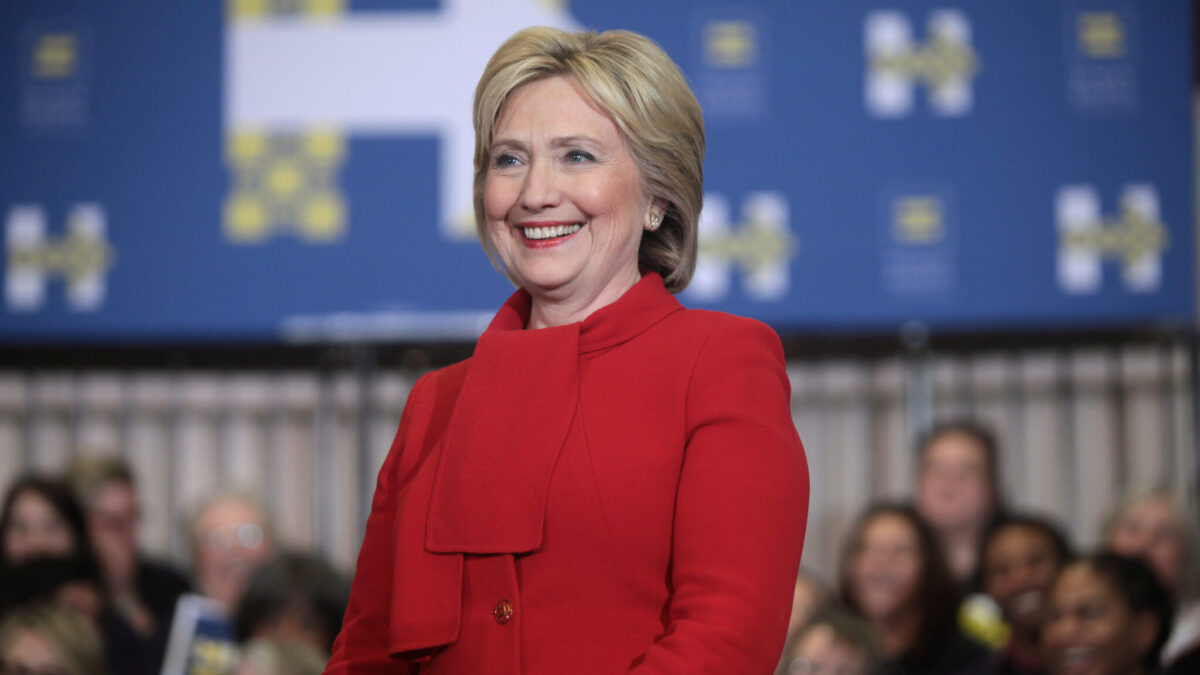In the days leading up to the announcement that a New York County grand jury had voted to indict former President Donald Trump, the anticipation was almost unbearable for the left. They had waited with frustration at the failure of the legal and administrative state establishment, which their side controls, to find a way to jail the bad orange man they hate so much. So, it was understandable that The New York Times — the flagship of corporate media — would seek to rationalize the bizarre legal theory that Manhattan District Attorney Alvin Bragg is using to indict Trump.
In doing so, the paper also managed to provide an object lesson in how the Democrats’ press cheerleaders employ a view of modern American history that employs the Stalinist tactics immortalized in our literary canon by George Orwell’s “1984.” In one breathtakingly dishonest article, the Times’ political correspondent Jonathan Weisman — who has made no secret of his left-wing views but was demoted in 2019 for tweets deemed insufficiently woke — revived “October surprise” myths about Republicans stealing elections in 2016, 1980, and even 1968, while at the same time consigning down the Orwellian “memory hole” the efforts of Democrats and their media and Big Tech enablers to crookedly distort the results of the 2020 election.
The conceit of the unironically titled “Donald Trump, and the Sordid Tradition of Suppressing October Surprises” is that the payment of hush money to porn star Stormy Daniels is worthy of prosecution. It claims that cover-up was not only an in-kind campaign contribution but that preventing the public from knowing about Trump’s alleged tryst forestalled an “October surprise” that might have stopped him from defeating Hillary Clinton.
The article fails because it omits any mention of “Hunter Biden” when listing examples of October surprise stories that might have changed elections but didn’t because they were suppressed.
Affair News Wouldn’t Have Changed the Election
The notion that a politician covering up an affair is a campaign contribution is a reach under any circumstance but especially when it concerns a prosecutor of one political party seeking to jail both an ex-president and the leading presidential candidate of a rival political party. But leaving aside the banana republic aspect of the efforts to prosecute Trump, the argument that the public knowing about Stormy Daniels would have changed the 2016 election makes no sense.
Even assuming Trump did have an affair with Daniels and then paid her to keep quiet about it, it’s a silly idea that this would have shocked Americans who voted for him into instead staying home or supporting Hillary Clinton.
After all, Trump had spent the previous 30 years virtually living on the New York Post’s “Page Six” gossip column. The paper trail of his public indiscretions and contentious divorces was part of the reason the political establishment didn’t take him seriously when he announced his candidacy since they assumed anyone with Trump’s past couldn’t be elected president.
They were wrong. Just as Bill Clinton proved Democrats didn’t regard moral failings as a dealbreaker, Trump proved the same was true of Republicans. We also know this because there actually was an October surprise in 2016 that was aimed at derailing Trump’s campaign on moral grounds.
Actual October Surprise Didn’t Derail Trump
On Oct. 7, 2016, The Washington Post published a video and accompanying article about Trump’s “extremely lewd conversation about women” with Access Hollywood host Billy Bush, in which he arguably confessed to behavior that was construed as sexual assault. The story caused some Republicans to waver in their support of Trump. It also ensured no one paid any attention to a story about WikiLeaks’ distribution of Clinton campaign chair John Podesta’s emails that, in future years, Democrats would falsely claim turned the electorate against the Democrats.
Trump survived the “Access Hollywood” tape and won the presidency. So it is ludicrous to argue that a story about a consensual extramarital affair that lacked incriminating videos would have damaged Trump more than his boasts to Billy Bush.
But the fact that Weisman didn’t even mention the actual October surprise of 2016 illustrates the dishonesty of the article.
Supposed Suppression of Other Surprises
Yet just as bad was Weisman’s attempt to buttress this absurd premise by detailing other examples of how Republicans have supposedly suppressed October surprises.
In line with other Times articles that are part of the wave of revisionism about the terminally ill former President Jimmy Carter, Weisman brings up the long-debunked myths that Republicans colluded with Iran to prevent the release of the Americans taken hostage at the U.S. Embassy in Tehran in 1979 prior to the 1980 election. The claim is divorced from the reality of the 1980 election. Ronald Reagan’s landslide victory was against a president whose domestic and foreign failures were legion. But it should resonate with a later generation that was asked to believe an equally false conspiracy theory about Trump and Russia.
Weisman also brings up claims, which may well be factual, that some Republicans and their allies sought to convince the doomed government of South Vietnam not to go along with the Lyndon Johnson administration’s efforts to force them to sign a peace deal with communist North Vietnam before the 1968 election. Yet even if this is true, it’s not clear how that would have helped Vice President Hubert Humphrey defeat Richard Nixon, especially since the peace talks had already helped undermine the GOP efforts to speak of the incumbents’ failure to end their unwinnable war. Moreover, there were good reasons to advise the Saigon government not to trust communist promises about peace, which, as the events of the following years proved, were all too accurate.
One Documented Suppressed October Surprise
However, any piece about suppressed October surprises would have to start at the one documented instance we have of such an incident: the silencing of the Hunter Biden laptop story by both the corporate media and their Big Tech allies. Though, years later, they would have to admit that the laptop with the incriminating evidence about Biden family corruption was real, and the Times and the rest of the legacy outlets had refused to cover the story except to spread the Democrats’ lies about it being “Russian disinformation.”
At least one poll showed it was a game changer, but we will never know if the full exposure of this sordid story would have altered the outcome of the 2020 election. We do know it did — along with other aspects of the campaign, including the changes in election laws and the “shadow campaign” by social media companies, big business, and labor colluding to elect Biden — undermine confidence in the integrity of the electoral system.
But you would never know that if you are a New York Times reader or get your news from any other non-conservative source. This is among the most egregious examples in recent memory of the Times’ political bias and, as such, demonstrates why Americans are so divided and also why they are right not to trust a word they read or hear from these outlets.








